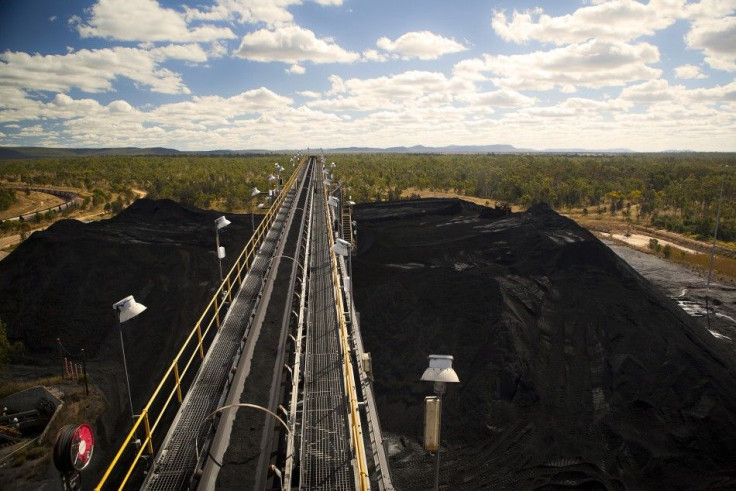Investors Cautious on Prospect of Macarthur Bidding War

Investors were cautious on Monday on the prospect of rivals challenging Peabody Energy's (BTU.N) bid for Macarthur Coal (MCC.AX), though sources familiar with the matter said potential suitor Anglo American (AAL.L) was studying the books.
Two sources familiar with the matter said on Monday that Anglo, one of Australia's top coal producers, was looking at Macarthur's finances, but would not necessarily move forward with an offer to challenge the $5 billion bid currently on the table from long-time suitor Peabody and partner ArcelorMittal (ISPA.AS), which owns 16.1 percent of Macarthur.
The sources played down newspaper reports of a possible tie-up between Anglo and China's Citic, Macarthur's biggest shareholder, as premature, though analysts and others in the industry said that would be a good move from Anglo if it was to move forward and succeed in beating Peabody's offer.
Citic (1205.HK) has not declared where it stands on the bid, despite market speculation it is opposed to Peabody's offer and could back a rival suitor.
Citic has a 24.6 percent stake and was a major stumbling block in 2010, when Macarthur was the subject of a three-way bidding war that also included Peabody.
It agreed then to talk with Peabody, the highest bidder, but those talks collapsed after Peabody cut its offer when the Australian government slapped coal and iron ore miners with a mining tax.
Both Macarthur and Anglo American declined to comment.
Macarthur shares closed up 2.7 percent at A$15.74 on Monday, just above the Peabody offer of A$15.66 per share, including a 16 cent dividend.
Macarthur shares hit a high of A$15.94 when Peabody went hostile on August 1, but the stocks have faltered in recent weeks after a rival offer failed to materialize.
Anglo shares were up 2 percent at 6:15 a.m. EDT, just ahead of a 1.4 percent rise in the broader sector.
Two other sources familiar with the deal said Anglo was likely one of a number of parties looking at Macarthur after advisers opened a data room to drum up interest in a rival bid.
There is a lot of pressure on the (Macarthur) board to make something out of this ... I'm sure there is somebody in the data room but the question is how serious are they and if it is Anglo, they look at everything, one source said.
Other potential suitors for Macarthur, the world's largest producer of seaborne pulverized coal, include the likes of majors Xstrata (XTA.L), Vale (VALE5.SA), BHP Billiton (BHP.AX) and Rio Tinto (RIO.AX).
SYNERGIES
Analysts at Liberum in London said a rival offer from Anglo could make sense: With only $6.8 billion of net debt and the second lowest gearing of the Big 5 at 14 percent, Anglo would be well-positioned to fund a joint cash bid.
Another analyst who declined to be named said: There would be synergies and it would make sense. They have expressed some interest in the past, so this would not be beyond the realms of possibility.
Peabody, already one of Australia's larger coal miners, and ArcelorMittal launched a hostile A$4.7 billion ($5.2 billion) bid for Macarthur Coal on August 1, after the Australian target's board said the approach undervalued the company and it was working on attracting a rival offer.
Citic chairman Chang Zhenming told reporters on Friday Citic had yet to decide whether to counterbid for Macarthur.
PCI -- or pulverized coal injection -- coal, which is crushed into a fine powder and injected into blast furnaces, is used as a replacement for coke in the production of pig iron.
A bid for Macarthur would be a substantial bet on strong and steady demand in Asia, from China and India, as well as from other countries where steel growth is forecast strong.
© Copyright Thomson Reuters {{Year}}. All rights reserved.





















